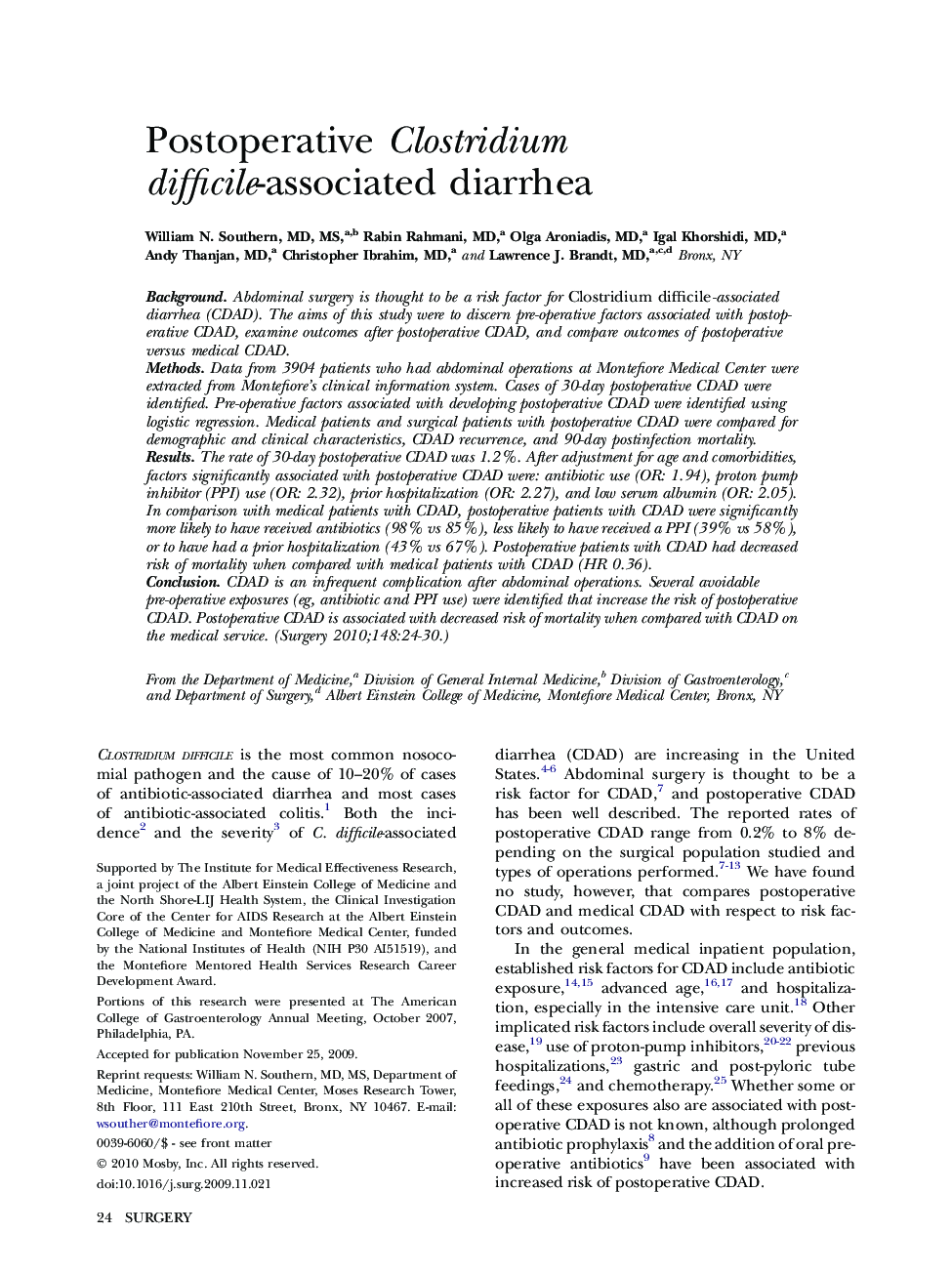| Article ID | Journal | Published Year | Pages | File Type |
|---|---|---|---|---|
| 4308666 | Surgery | 2010 | 7 Pages |
BackgroundAbdominal surgery is thought to be a risk factor for Clostridium difficile-associated diarrhea (CDAD). The aims of this study were to discern pre-operative factors associated with postoperative CDAD, examine outcomes after postoperative CDAD, and compare outcomes of postoperative versus medical CDAD.MethodsData from 3904 patients who had abdominal operations at Montefiore Medical Center were extracted from Montefiore's clinical information system. Cases of 30-day postoperative CDAD were identified. Pre-operative factors associated with developing postoperative CDAD were identified using logistic regression. Medical patients and surgical patients with postoperative CDAD were compared for demographic and clinical characteristics, CDAD recurrence, and 90-day postinfection mortality.ResultsThe rate of 30-day postoperative CDAD was 1.2%. After adjustment for age and comorbidities, factors significantly associated with postoperative CDAD were: antibiotic use (OR: 1.94), proton pump inhibitor (PPI) use (OR: 2.32), prior hospitalization (OR: 2.27), and low serum albumin (OR: 2.05). In comparison with medical patients with CDAD, postoperative patients with CDAD were significantly more likely to have received antibiotics (98% vs 85%), less likely to have received a PPI (39% vs 58%), or to have had a prior hospitalization (43% vs 67%). Postoperative patients with CDAD had decreased risk of mortality when compared with medical patients with CDAD (HR 0.36).ConclusionCDAD is an infrequent complication after abdominal operations. Several avoidable pre-operative exposures (eg, antibiotic and PPI use) were identified that increase the risk of postoperative CDAD. Postoperative CDAD is associated with decreased risk of mortality when compared with CDAD on the medical service.
